| Home > China Feature |
Wedding of the Nu ethnic group
Nu Ethnic Minority Group, which has a long history and mainly inhabits Yunnan Province, Southwest China, has some distinctive marriage customs. Just like the ballad goes, "the auntie's daughter doesn't yield to others", the mother's brother has an extremely high social status, so the marriage between cousins has special priority over that of others.
There are some different marriage customs in Nu Ethnic Minority Group when compared to the average Chinese wedding. In some areas it is prevailing that men live at their wives' home and that widows are not discriminated by others if they get remarried. In some areas the homogeneous marriage was once very popular and girls were kept at home as the property of the family.
There are some different marriage customs in Nu Ethnic Minority Group when compared to the average Chinese wedding. In some areas it is prevailing that men live at their wives' home and that widows are not discriminated by others if they get remarried. In some areas the homogeneous marriage was once very popular and girls were kept at home as the property of the family.
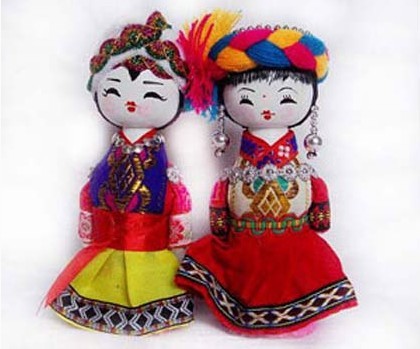
Busy preparations after vows of eternal love
Boys and girls are free to take part in social activities before marriage. If they fall in love with each other, they will present each other a keepsake such as a bracelet. Then the boy's matchmaker goes to the girl's home to make a proposal. It is an understood thing between their parents and they make a match.
Nu Ethnic Minority Group usually sets a day in the year of the dragon or the snake to hold the marriage ceremony, as the dragon and the snake are the symbols of good fortune in their concept. Several days before the ceremony, the men and women from each family of the village go to help the bridegroom to prepare for the wedding. The family of the bride is also busy with many things such as making the wedding gown, buying the jewelry, and inviting the bridesmaid and guests. Both sides present pigs to each other. If the bridegroom receives one pig, then he must present two. In Nu Ethnic Minority Group of Gongshan Dulong-Nu Autonomous County, the bridegroom usually gives certain presents to his parents-in-law and gives a farm implement and a pig to the bride's elder brother.
Wedding lasts three days and nights
Welcoming the bride is the most lively part of the ceremony. A singer has to be selected to follow the team. Only when he defeats the singer of the bride's side who gets in their way can they fetch the bride.
On the wedding day, the bridegroom, followed by two best friends with firewood and cassia seed on their shoulders and a jar of wine and some other presents in their hands, set off to fetch the bride. After getting to the bride's home, they will be feast on tasty dishes. When the sun rises and the whole village is in the sunshine, the couple will leave. Numerous people cluster round the bride to see her off. Several strong young men with a big pig and a big jar of wine on their shoulders lead the way and at the back are the team escorting the bride with dowries. The bride, wearing beautiful clothes of Nu Ethnic Minority Group and being covered with a piece of colorful cloth on the face, walks in the middle of the party accompanied by some girls. When the party enters the bridegroom's village, the people who are waiting there rush to them and toast the helpers. But when the party arrives at the gate, only after the mother's brother of the bridegroom and aunt toast them with bamboo wine can the couple go into the yard.
As soon as they enter the yard, the bridegroom's side accepts the presents and greets the group warmly. The bridegroom gets hold of his wife's hand and leads her to the bridal chamber. At the moment, a man of the escort fires three shots to the sky, which means celebrating their marriage. Others in the escorting group beginning the dance of Nu Ethnic Minority Group, follow them into the room with rhythmic steps, and dance for a lap around the fire. Then a respected old man expresses good wishes to the bride and groom, wishing them to be happy and have dozens of descendents. After that, each member of the escort makes another toast and again until they are flushed and in high spirits.
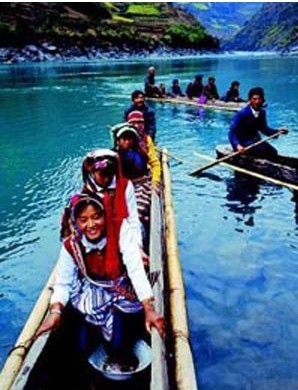
The wedding ceremony is a party of performing dances and songs. In the house, while playing the pipa and the Jew's harp, some boys and girls play the pipa and guozhuang dance joyously. Gathering around the fire, the old people express good wishes to the couple and sing wedding songs. In the yard, some boys and girls sing wedding songs in response and dance with an agreeable melody. The whole yard is full of joy. The content of their songs is very rich, from the origin of the human being to the life of their ancestors, from the love between boys and girls to the wedding customs. The wedding songs are so long that they are completed several times. At the intervals the singers and the bride and groom eat rice with their hands (the Catching Food in Hand) and then go on singing. Sometimes they will sing until daybreak. On the next morning, each of the guests is served a dish and then they leave happily.
The wedding banquet is the largest one of all the ceremonies. Before the wedding ceremony, the bridegroom goes to the father-in-law's with pork and rice to help to chop the wood and plough the farmland. The feast must be wonderful and the site of the feast must be laid out. On the occasion the bride and groom drink the wine together to celebrate their marriage and the girls sprinkle the flour on them, which means good luck and good fortune.
Within the three days after the wedding ceremony, the bride and groom are accompanied to go to bed separately by their own maid. The bridesmaid lifts water and cooks on behalf of the bride every day and will be given a present for thanks when she returns home.
According to the traditional customs, the bride and groom can't live together in the first three days after marriage and are separately accompanied to sleep in two beds in the bridal chamber by a lad and a girl. On the fourth day, the bridegroom takes his wife to his father-in-law's with a pig and a jar of wine to show respect. And not until then can the bridegroom bring his wife home and can the whole wedding ceremony come to an end.
Nu Ethnic Minority Group has a system of monogamy by and large, but there are still many survivals of the primitive marriage. For example, the sub-consanguinity homogeneous marriages are those mostly from the same clans or even the same families. That is to say, all boys and girls who have the same grandparents or even have different family hierarchies, except their natural parents and biological brothers and sisters, can get married. In addition, Nu Ethnic Minority Group remains the system of "the wife's brother marries the husband's sister". In some clans, the head has more than one wife. After marriage, the man separates from his parents and forms a small family.
Art
 more
moreChina Beijing International Diet ...
Recently, The hit CCTV documentary, A Bite of China, shown at 10:40 ...
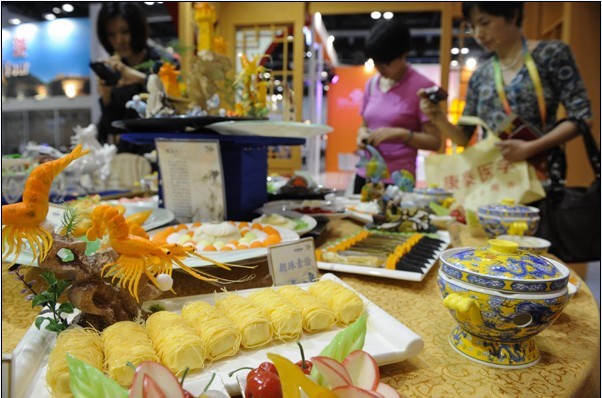
Exhibition of Ancient Chinese Jad...
At least 8,000 years ago, Chinese ancestors discovered a beautiful...
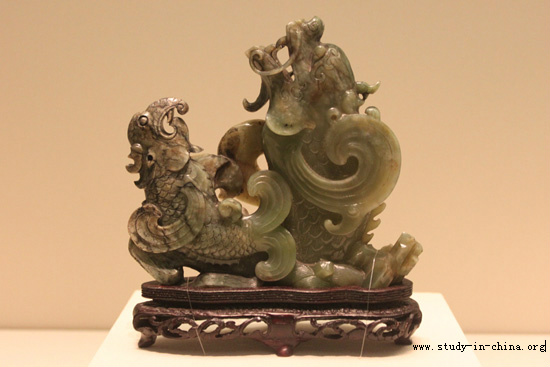
Longmen Grottoes
The Longmen Grottoes, located near Luoyang, Henan Province, are a tr...
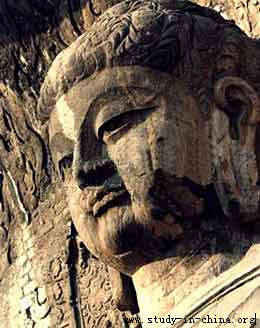
Custom
 more
moreWeb Dictionary
Martial Arts
Tai Chi Master Class Held in Moscow
MOSCOW, June 15, 2016 (Xinhua) -- Students learn from Shaolin ...
Celebriting 70 years' efforts in restoring Mogao...
Work is being carried out at the restoration site of cave No 98 a...
Hong Kong Children's Symphony performs in Seattle
Under the theme of Tribute to the Golden Age, a concert featuring a ...





 print
print  email
email  Favorite
Favorite  Transtlate
Transtlate 








